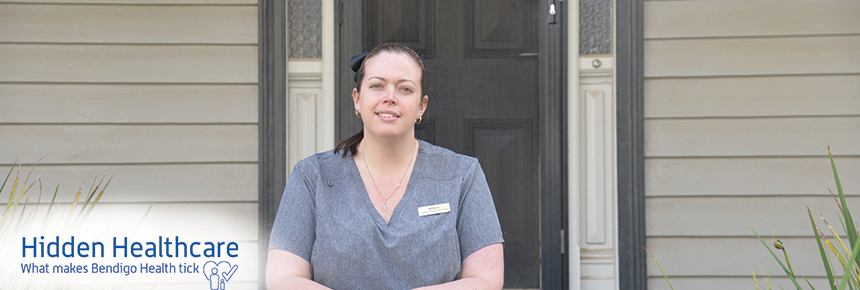 Infection control nurse consultant Monica McHugh is part of a team training Bendigo Health staff on how to work in an infectious environment.
Infection control nurse consultant Monica McHugh is part of a team training Bendigo Health staff on how to work in an infectious environment.
When the World Health Organisation declared the Coronavirus outbreak in Wuhan as a Public Health Emergency of International Concern on 30 January, eyebrows were collectively raised among the infection control team at Bendigo Health.
In some ways they’ve been raised ever since.
“It all happened quite quickly really,” Infection control nurse consultant Monica McHugh explains.
“We knew we had to be ahead of the game as there was going to be people coming back from areas where the risk of COVID-19 was quite high and we had to anticipate what kinds of needs our health service might have,” she said.
The primary concern was training staff on how to protect themselves by using Personal Protective Equipment (PPE) appropriately.
Not since the Ebola outbreak in 2014 have staff needed to know how to use and dispose of PPE in the context of highly infectious virus.
“We had to get ourselves and get the health service organised – unlike Ebola, Coronavirus arrived very quickly and we weren’t at the stage where we were ready for it to arrive,” she said.
With Ebola, Emergency Department staff were the only ones trained to work in an infectious environment whereas Coronavirus required a whole of organisation approach.
“It has been a massive, combined effort from infection control and the clinical education unit,” Monica said.
More than 80 per cent of the 3000 clinical staff at Bendigo Health have had in-person donning and doffing of PPE demonstrations, with the first 1000 done in a fortnight.
The rapid spread of the disease combined with the horror stories from overseas caused angst among the frontline workforce, which the infection control team felt obliged to try and manage.
“We’ve certainly been dealing with a lot of anxious staff during this time and while the virus itself hasn’t had a huge impact here in Australia the ‘infodemic’ that comes with the virus has been immense,” she said.
“Most of us the infection control team are confident in the way the chain of infection works and we feel confident in the environment we’re working in but everybody’s level of knowledge differs makes it hard to deal with the anxiety of the situation.
“It’s been a challenging time for all of us to get the message across to people that things are going to be ok.”
From training staff to writing policies to reviewing Coronavirus cases on the respiratory ward, the small infection control team have had a whirlwind 12 weeks.
They’re also tasked with contacting the thousands of people who have been tested for Coronavirus at the Screening Clinic on Stewart Street and liaising with families and friends of positive cases.
“We’re a close knit team and we debrief and help each other out when they need a break,” she said.

For more in our Hidden Healthcare series, click the link below.
Hidden Healthcare